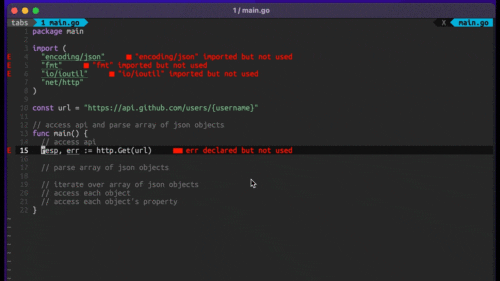
Four Key Reasons to Learn Markdown
Back-End Leveling UpWriting documentation is fun—really, really fun. I know some engineers may disagree with me, but as a technical writer, creating quality documentation that will...

Database-bound tests are a drag. Inconsistent tests are a pain. Database-bound,
inconsistently failing tests are the worst!
The following commit message is from a real code base:
Run in transactions by default.
When we added controller specs they weren’t being run w/any kind of DB
cleaner b/c there was no default strategy and they weren’t explicitly
included in a group. Now, we use:transactionsbe default, setting request
specs to use:truncation
Also, I saw a 2 second speed up from this change!
Let’s look at what we changed in this commit to turn our inconsistently failing
database-bound tests into slightly faster, consistent, database-bound tests.
Whenever possible I strive to write isolated tests, stubbing out collaborators
where necessary, while driving from the outside of the system downward, one
layer at time. However, there are occasions where you must hit the database.
Testing ActiveRecord scopes and higher-order acceptance tests are two cases
where I believe it is okay to have tests which cross layers, and may even hit a
database.

When you are going to hit a database, your
tests should be good citizens and clean up after themselves.
If you’re using RSpec with Rails your tests run within a transaction
by default. Yay!
Unfortunately, test tooling like Capybara won’t work with
transactions and you’ll be forced to resort to techniques like database
truncation to ensure proper data clean up. I really like Database
Cleaner for that job.
What follows is the RSpec configuration we ended up with after the previously
mentioned commit. Or at least a very close approximation of it
| ENV["RAILS_ENV"] ||= 'test' | |
| require File.expand_path("../../config/environment", __FILE__) | |
| require 'rspec/rails' | |
| require 'rspec/autorun' | |
| require 'capybara/rspec' | |
| require 'webmock/rspec' | |
| require 'factory_girl' | |
| require 'factory_girl_rails' | |
| Dir[Rails.root.join("spec/support/**/*.rb")].each {|f| require f} | |
| RSpec.configure do |config| | |
| config.use_transactional_fixtures = false | |
| config.infer_base_class_for_anonymous_controllers = false | |
| config.include JsonSpec::Helpers | |
| config.include LoginHelper, type: :request | |
| config.include ActivitySpecHelper, type: :request | |
| config.include RoomSpecHelper, type: :request | |
| config.include AutocompleteSpecHelper, type: :request | |
| config.before :suite do | |
| DatabaseCleaner.strategy = :transaction | |
| DatabaseCleaner.clean_with(:truncation) | |
| end | |
| # Request specs cannot use a transaction because Capybara runs in a | |
| # separate thread with a different database connection. | |
| config.before type: :request do | |
| DatabaseCleaner.strategy = :truncation | |
| end | |
| # Reset so other non-request specs don't have to deal with slow truncation. | |
| config.after type: :request do | |
| DatabaseCleaner.strategy = :transaction | |
| end | |
| config.before do | |
| DatabaseCleaner.start | |
| WebMock.disable_net_connect!(:allow_localhost => true) | |
| ActionMailer::Base.deliveries.clear | |
| end | |
| config.after do | |
| DatabaseCleaner.clean | |
| end | |
| Capybara.javascript_driver = :webkit | |
| Capybara.ignore_hidden_elements = false | |
| end |
To start, turn off RSpec’s built-in transaction support as we’ll handle that
with database_cleaner.
| config.use_transactional_fixtures = false |
Next we configure a default clean-up strategy for every RSpec suite. We’ll use
transactions by default, being sure to clean up any thing that might have been
left behind with a truncation.
| config.before :suite do | |
| DatabaseCleaner.strategy = :transaction | |
| DatabaseCleaner.clean_with(:truncation) | |
| end |
We make a special exception for request specs, which are often driven by
Capybara, and switch them over to truncation.
| config.before type: :request do | |
| DatabaseCleaner.strategy = :truncation | |
| end | |
| config.after type: :request do | |
| DatabaseCleaner.strategy = :transaction | |
| end |
Then, before every test runs start Database Cleaner
| config.before do | |
| DatabaseCleaner.start | |
| WebMock.disable_net_connect!(:allow_localhost => true) | |
| ActionMailer::Base.deliveries.clear | |
| end |
And finally, after every test runs, tell Database cleaner to clean up using
whatever strategy it is currently configured with.
| config.after do | |
| DatabaseCleaner.clean | |
| end |
For posterity’s sake, you can see a full before and after of
this particular spec_helper on The GitHubs.

Writing documentation is fun—really, really fun. I know some engineers may disagree with me, but as a technical writer, creating quality documentation that will...

Humanity has come a long way in its technological journey. We have reached the cusp of an age in which the concepts we have...

Go 1.18 has finally landed, and with it comes its own flavor of generics. In a previous post, we went over the accepted proposal and dove...